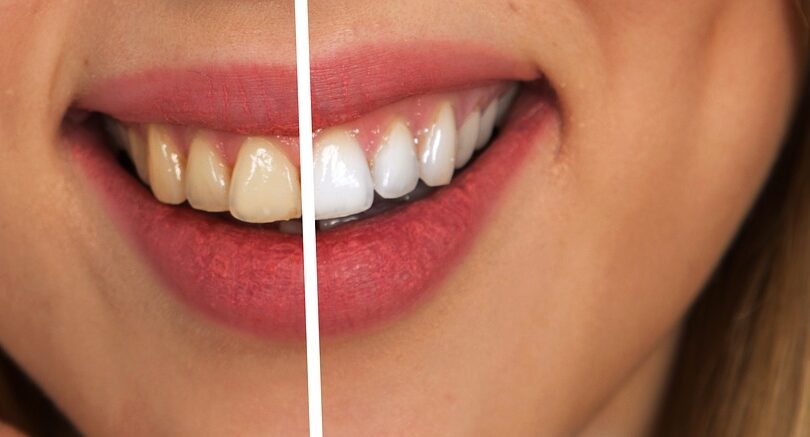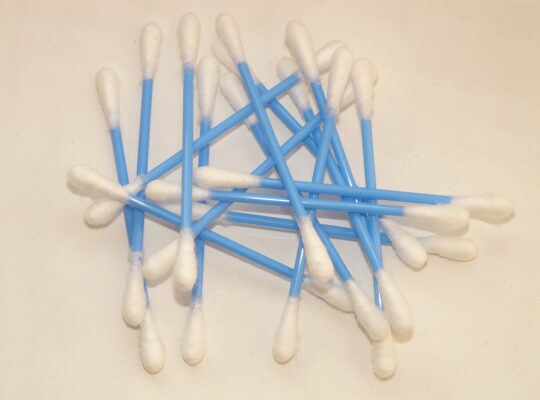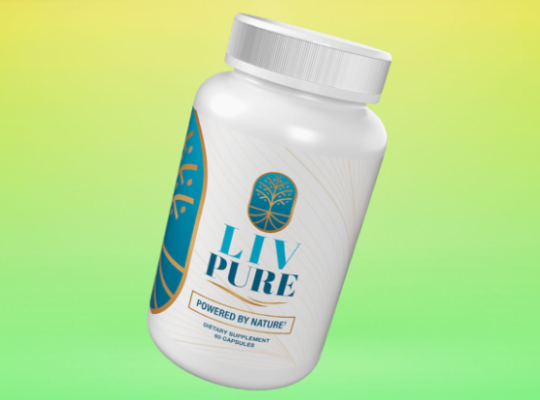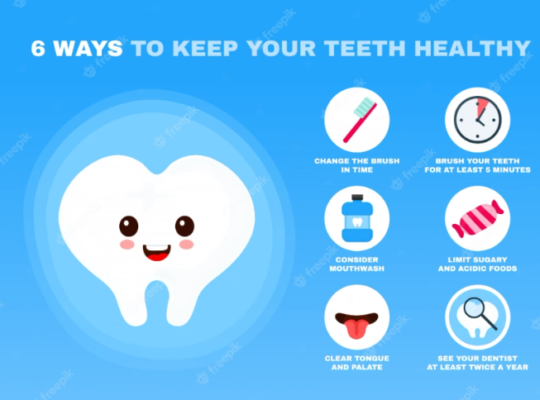Taking care of your teeth is essential for maintaining good oral health. Strong and healthy teeth not only enhance your smile but also contribute to your overall well-being. If you’re wondering, “How can I make my teeth healthy?” you’ve come to the right place. In this comprehensive guide, we will explore various strategies and practices to help you achieve optimal oral health.
Importance of Oral Health
Before delving into the ways to make your teeth healthy, it’s crucial to understand the significance of oral health. Your teeth and gums play a vital role in your overall well-being. Poor oral hygiene can lead to a range of dental issues, including tooth decay, gum disease, and bad breath. Additionally, research suggests that oral health is linked to systemic conditions such as heart disease, diabetes, and respiratory infections 1. Therefore, taking care of your teeth is not just about aesthetics but also about preserving your overall health.
Establishing a Solid Oral Hygiene Routine
The foundation of healthy teeth lies in establishing a solid oral hygiene routine. Here are some essential practices to incorporate into your daily life:
1. Brush Your Teeth Twice a Day
Brushing your teeth is the cornerstone of oral hygiene. It helps remove plaque, bacteria, and food particles from the surfaces of your teeth. Make sure to brush your teeth at least twice a day, using a soft-bristled toothbrush and fluoride toothpaste. Spend a minimum of two minutes brushing, covering all surfaces of your teeth 2.
2. Floss Daily
While brushing is crucial, it cannot reach the spaces between your teeth. Flossing helps remove plaque and debris from these hard-to-reach areas, preventing gum disease and tooth decay. Aim to floss at least once a day, using proper flossing techniques. If traditional flossing is challenging, consider using floss picks or interdental brushes for convenience 3.
Want a fast and easy teeth-whitening solution to get a brighter, healthier smile in no time, read the bonus tip at the bottom of the page.
3. Use Mouthwash
Mouthwash serves as an adjunct to brushing and flossing. It helps kill bacteria, freshens breath, and provides additional protection against tooth decay and gum disease. Look for mouthwashes that contain fluoride and antimicrobial properties for maximum benefits. Incorporate mouthwash into your oral hygiene routine by swishing it around your mouth for 30-60 seconds after brushing and flossing 4.
4. Maintain a Healthy Diet
A nutritious diet plays a significant role in maintaining oral health. Limit your intake of sugary and acidic foods, as they can contribute to tooth decay. Instead, opt for a well-balanced diet that includes plenty of fruits, vegetables, lean proteins, and whole grains. These foods provide essential nutrients, vitamins, and minerals that promote strong teeth and gums 5.
5. Limit Snacking
Frequent snacking, especially on sugary or starchy foods, can increase the risk of tooth decay. When you snack, the bacteria in your mouth feed on the sugars and produce acids that attack your tooth enamel. To minimize the effects of snacking, choose healthy, low-sugar alternatives, and rinse your mouth with water afterward 6.
6. Stay Hydrated
Drinking plenty of water is not only essential for overall health but also for maintaining good oral health. Water helps wash away food particles, neutralize acids, and stimulate saliva production. Saliva plays a crucial role in protecting your teeth by neutralizing acid and remineralizing enamel. Stay hydrated throughout the day by sipping water, particularly after meals 7.
Additional Strategies for Healthy Teeth
In addition to establishing a solid oral hygiene routine, several other strategies can help make your teeth healthy. Let’s explore them further:
7. Consider Oil Pulling
Oil pulling is an ancient Ayurvedic practice that involves swishing oil in your mouth for 20 minutes. This technique helps remove bacteria, plaque, and toxins from your teeth and gums. Coconut oil is a popular choice for oil pulling due to its antimicrobial properties. To try oil pulling, take a tablespoon of coconut oil and swish it around your mouth, making sure to reach all areas. Spit out the oil after 20 minutes and rinse your mouth with water 8.
8. Consume Mineral-Rich Foods
Your teeth rely on essential minerals like calcium, phosphorus, and magnesium for strength and remineralization. Incorporating mineral-rich foods into your diet can support healthy teeth. Some examples include organic bone broth, eggs, grass-fed meats, dark leafy greens, mushrooms, and cheese. These foods provide the necessary minerals to keep your teeth strong and resilient 9.
9. Avoid Refined Sugar
Refined sugar is a major contributor to tooth decay. The bacteria in your mouth feed on sugar and produce acids that erode your tooth enamel. Minimizing your consumption of sugary foods and beverages can significantly reduce your risk of tooth decay. Opt for healthier alternatives like fresh fruits or natural sweeteners such as stevia 10.
10. Practice Proper Tongue Cleaning
Cleaning your tongue is an often-overlooked aspect of oral hygiene. Bacteria can accumulate on the surface of your tongue, contributing to bad breath and oral health issues. Use a tongue scraper or your toothbrush to gently clean your tongue daily. This practice helps remove bacteria and promotes fresher breath 11.
11. Emphasize Fat-Soluble Vitamins
Certain vitamins play a crucial role in maintaining healthy teeth. Vitamins A, D, E, and K2 are particularly beneficial for dental health. Vitamin D aids in the absorption of calcium and phosphorus, while vitamin K2 ensures these minerals are deposited in your teeth and bones. Incorporate foods rich in these vitamins into your diet, such as fatty fish, organ meats, leafy greens, and eggs 12.
12. Promote Good Digestion
Proper digestion is essential for nutrient absorption, including those necessary for tooth health. Factors like stress, certain medications, alcohol, and processed foods can impair digestion and hinder nutrient absorption. To support healthy digestion, consume healthy fats with each meal, take a probiotic supplement, and incorporate probiotic-rich foods into your diet 13.
13. Address Teeth Grinding or Clenching
Teeth grinding and clenching, known as bruxism, can lead to tooth enamel wear and damage. If you experience symptoms such as jaw pain, headaches, or worn-down teeth, consult your dentist. They may recommend a nightguard or other treatments to protect your teeth and alleviate bruxism 14.
14. Visit Your Dentist Regularly
Regular dental check-ups are essential for maintaining healthy teeth and gums. Dentists can detect early signs of dental problems, perform professional cleanings, and provide personalized advice for oral care. Aim to visit your dentist every six months or as recommended by your oral healthcare professional 15.
15. Avoid Harmful Chemicals in Toothpaste
Choosing the right toothpaste is essential for maintaining healthy teeth. Avoid toothpaste containing harmful chemicals like fluoride, which can cause fluorosis and other adverse effects. Instead, opt for fluoride-free toothpaste that focuses on natural ingredients and gentle cleaning. Consult with your dentist for recommendations on toothpaste that best suits your needs 16.
Bonus Tip
Ready to achieve a brighter, healthier smile the natural way? Try our all-natural teeth whitening product today and experience the benefits of a chemical-free, eco-friendly solution. With no harsh chemicals or additives, our product can help you achieve a brighter, whiter smile while promoting overall dental health. Learn more here!
Conclusion
Achieving and maintaining healthy teeth requires a combination of proper oral hygiene practices, a nutritious diet, and lifestyle choices. By following a solid oral care routine, consuming mineral-rich foods, avoiding harmful substances, and visiting your dentist regularly, you can promote the health and longevity of your teeth. Remember, strong and healthy teeth contribute not only to a beautiful smile but also to your overall well-being.
If you have any concerns or questions about maintaining healthy teeth, don’t hesitate to reach out to your dentist or oral healthcare professional. They can provide personalized advice and guidance tailored to your specific needs and oral health goals. Start implementing these strategies today and enjoy the benefits of a radiant and healthy smile for years to come.
Note: This article is for informational purposes only and does not constitute medical advice. Please consult with a qualified dental professional for personalized recommendations and treatments.
Auto Amazon Links: No products found.
Footnotes
- Healthline. “The Link Between Oral Health and Overall Health.” Link ↩
- Mayo Clinic. “Oral health: Brush up on dental care basics.” Link ↩
- American Dental Association. “Flossing.” Link ↩
- American Dental Association. “Mouthwash (Mouthrinse).” Link ↩
- Academy of Nutrition and Dietetics. “Foods for Healthy Teeth.” Link ↩
- American Dental Association. “Snacking Tips for Good Oral Health.” Link ↩
- American Dental Association. “Drink Water for a Good Smile.” Link ↩
- Healthline. “Oil Pulling: Benefits and How to Do It.” Link ↩
- Healthline. “10 Mineral-Rich Foods to Add to Your Diet.” Link ↩
- Healthline. “How Does Sugar Affect Your Teeth?” Link ↩
- Mayo Clinic. “Oral health: Brush up on dental care basics.” Link ↩
- Healthline. “The 7 Best Foods for Healthy Teeth.” Link ↩
- Healthline. “Probiotics 101: A Simple Beginner’s Guide.” Link ↩
- Mayo Clinic. “Bruxism (teeth grinding).” Link ↩
- American Dental Association. “How Often Should You Go to the Dentist?” Link ↩
- Healthline. “Fluoride: Good or Bad? The Benefits and Side Effects.” Link ↩
Auto Amazon Links: No products found.






